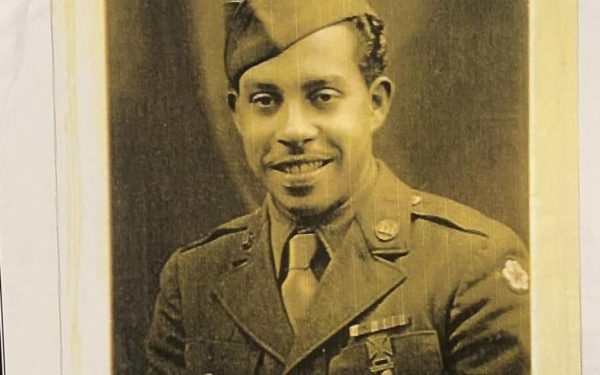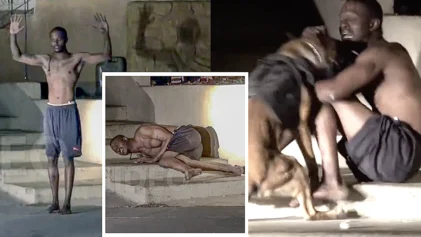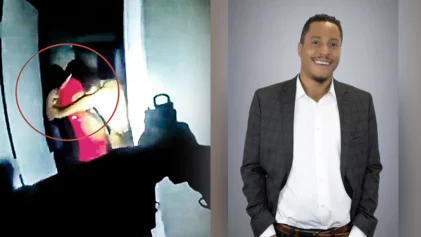An Army veteran is getting the recognition he deserves after being denied it for decades because he was Black.
On Friday, June 18, WWII Army Private Osceola “Ozzie” Fletcher received the Purple Heart medal during a ceremony at Fort Hamilton Community Club in Brooklyn. On that day, U.S. Army Chief of Staff Gen. James C. McConville, a member of the Joint Chiefs of Staff, flew in an Army transport helicopter to Bay Ridge to personally pin the Purple Heart on Fletcher in ceremony attended by dignitaries, media and community members.

“He has spent his entire career giving to those around him, whether they were brothers in arms, family, or his community,” the four-star general said in his speech. “Well, today it’s Ozzie’s turn to receive.” When asked how he felt about receiving the prestigious award, Fletcher responded, “I’m exhilarated.”
According to the Army, Fletcher, now 99 years old, should’ve received the honor awarded to those wounded in battle nearly 77 years ago, but “due to some of the racial inequalities at the time, his story had been overlooked for decades, despite rightfully earning this medal in the same historic battle.”
The Brooklyn native served as a crane operator in the Army’s 254th Port Battalion, a unit responsible for loading and unloading ships and delivering supplies and machinery on land. He grew up as a foster child and later attended Jamaica High School in Queens, where he learned to operate machinery. In 1942, he was drafted into the military. Two years later, Fletcher said that on June 6 — D-Day, the start of Operation Overlord, the Allied invasion of Normandy, France — he and another man were riding in a truck when their vehicle was hit with a rocket fired by German soldiers. Subsequently, their car overturned, killing the driver. Fletcher, on the other hand, suffered a severe leg injury and a head gash that left a permanent scar.
“We’re leaving the shoreline. We’re leaving the water. And we’re going into the forest. We had heard about the Germans setting off missiles the size of asteroids,” Fletcher recalled during the medal ceremony. “Something, a missile, hit [our] tractor. That was an awful day.”
At just 22 years old, Fletcher, covered in blood, managed to get onto the beach. “He had to wade through the surf, not even realizing that his legs were cut and bleeding from all of the debris left in the water after the initial battle,” McConville added.
He returned from his duties in 1946 and joined the New York City Police Department, where he worked for the next 26 years until he retired as a sergeant. However, Fletcher’s passion for service wasn’t extinguished. He then became an educator at Brooklyn’s Boys and Girls High School, where he taught for 14 years.
Fletcher’s daughter Jacqueline Streets played a critical role in her father receiving this award after contacting the chairman of the Joint Chiefs of Staff. My father has a gash in his head that we can still see. And we can see he was hurt. And obviously, he was doing the job of an American soldier. And I do believe he was overlooked,” Streets explained. “We’re finally looking at all of our soldiers in the same way, America is trying to shift its thinking about culture and about race, and I appreciate that. I think we’re acknowledging things that happened in the past and trying to correct them moving forward.”


